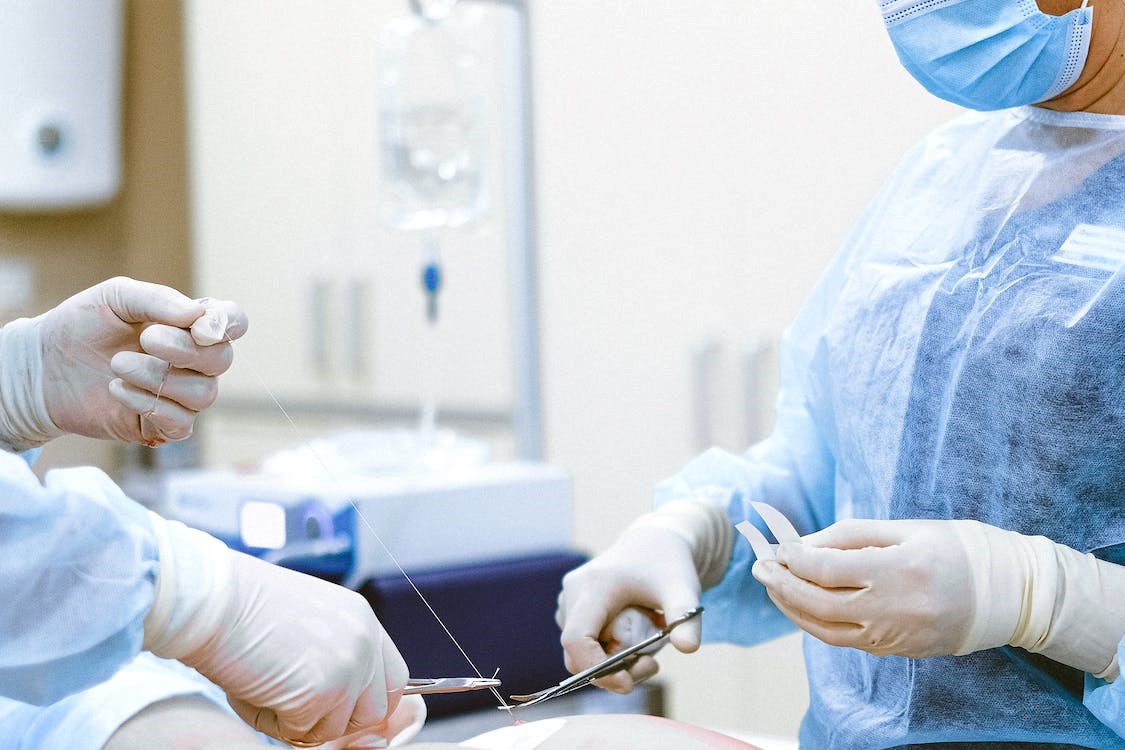6 Tips for Finding a Good Plastic Surgeon
Plastic surgery has made significant progress since its initial rise in popularity, with advancements in techniques and safety. Moreover, individuals of both genders have become increasingly accepting of the notion of improving their appearance through plastic surgery.
Remarkably, breast augmentation and liposuction consistently rank as some of the most sought-after surgeries globally. In 2020, plastic surgeons in the United States attended to over 190,000 patients for each procedure, according to a report by the American Society of Plastic Surgeons.
If you have decided to undergo plastic surgery, it is likely that you have dedicated considerable thought to identifying a skilled plastic surgeon. In this article, we’ll share a few tips to consider when choosing a plastic surgeon.
1. Seek a Board-Certified and Experienced Surgeon for Optimal Results
When selecting a plastic surgeon, it is crucial to find an individual who has obtained board certification in plastic surgery from the esteemed American Board of Plastic Surgery.
Attaining this certification indicates that the surgeon has completed at least six years of comprehensive surgical training, specifically focusing on plastic surgery for a considerable part of that period. Moreover, they have successfully passed rigorous examinations, both written and oral, validating their proficiency in the field. Additionally, board-certified surgeons are committed to maintaining safe and ethical surgical practices.
To evaluate the expertise of a potential surgeon, inquire about the number of patients they have treated with a similar condition to yours or the frequency at which they perform the specific procedure you are considering.
By seeking this information, you gain insight into the surgeon’s familiarity with your particular condition or desired procedure. A higher patient volume or a more frequent procedure performance indicates that the surgeon has extensive experience and is well-versed in the nuances and intricacies involved.
For instance, connecting the importance of board certification and experience, Dr. Jennifer Emmett, M.D., exemplifies a distinguished plastic surgeon with over 20 years of experience and board certification. She has built a reputable practice in Denver, specializing in breast augmentations and enhancements, serving a wide range of patients with successful outcomes.
By prioritizing board certification and experience, such as that embodied by Dr. Jennifer Emmett, M.D., you enhance the likelihood of achieving your desired outcomes and ensuring long-term satisfaction with the results.
2. Seek Recommendations for Top-tier Plastic Surgeons
You should allocate sufficient time for thorough research when finding the best plastic surgeon. Reading reviews and seeking recommendations from trustworthy friends and family members can help. However, it is essential to approach those who will provide honest and unbiased opinions.
Remember that every procedure is specific to every individual, and each person’s experience is unique. While seeking advice and recommendations is valuable, your personal satisfaction with the chosen surgeon is ultimately paramount. Thus, ensure that you carefully consider all suggestions while making a decision that aligns with your personal preferences and requirements.
3. Assess the Surgeon’s Style and Approach
When it comes to cosmetic plastic surgery, artistic skill is as crucial as medical expertise. Each individual’s body is unique, making it essential to find a plastic surgeon whose style aligns with your aesthetic goals. A surgeon who can customize their approach to your situation is more likely to deliver outcomes that meet your objectives.
To assess a surgeon’s capabilities, examine their gallery of patient cases and before-and-after photos to gain insight into the quality and variety of their previous work. During consultations, do not hesitate to request additional pictures, case studies, or patient testimonials.
4. Verify the Accreditation of the Surgeon’s Operating Facility
Plastic surgery procedures are commonly conducted in ambulatory care centers or surgical facilities within the surgeon’s office. Regardless of the location, it is imperative to ensure that the facility possesses the necessary accreditation, just like confirming the surgeon’s board certification. Accreditation guarantees adherence to stringent standards concerning equipment, safety measures, surgeon credentials, and staffing.
However, how can one determine if a facility is accredited? Look for the following accreditations:
- Joint Commission on Accreditation of Health Care Organizations
- Accreditation Association for Ambulatory Health Care
- American Association for Accreditation of Ambulatory Surgery Facilities
Accredited facilities must maintain a low occurrence of serious complications. Opting for an accredited facility not only ensures compliance with rigorous standards but also increases the chances of exceptional quality care.
5. Assess the Surgeon’s Communication Style
Selecting a plastic surgeon with whom you can establish open and comfortable communication is paramount. It is essential to find a surgeon who not only welcomes your questions but also provides responses that are easy for you to comprehend. Pay attention to their approach when you ask questions during your initial meeting. Does the surgeon encourage your inquiries and offer clear explanations? Do they present personalized treatment options that align with your specific needs?
Seek a plastic surgeon who demonstrates a genuine interest in understanding you as an individual, considering your treatment preferences, and respecting your decision-making process. A surgeon who values effective communication and takes the time to establish a rapport with you will contribute to a positive surgical experience and ensure that your treatment aligns with your goals and expectations.
6. Understand Your Insurance Coverage
A clear understanding of your insurance coverage is essential when considering plastic surgery. Cosmetic surgeries, for aesthetic purposes, are typically not covered by health insurance, meaning you will likely be responsible for the total cost out-of-pocket. However, certain reconstructive plastic surgeries to address congenital disabilities or severe burns may receive partial or complete coverage under health insurance plans.
To ensure clarity regarding your specific insurance plan, it is advisable to contact the surgeon’s office directly. They can verify whether your insurance plan is accepted and provide information on the extent of coverage for the desired procedure. Being well-informed about your insurance coverage will help you plan and budget accordingly for the anticipated plastic surgery costs.
Wrapping Up
Plastic surgery has witnessed remarkable advancements in techniques, safety, and social acceptance. It is crucial to prioritize critical factors when selecting a plastic surgeon to ensure optimal results. These key factors include board certification, experience, recommendations, communication style, facility accreditation, and insurance policy understanding.
By considering these factors and making informed choices, you can confidently embark on your plastic surgery journey and maximize the chances of a positive and rewarding outcome.


